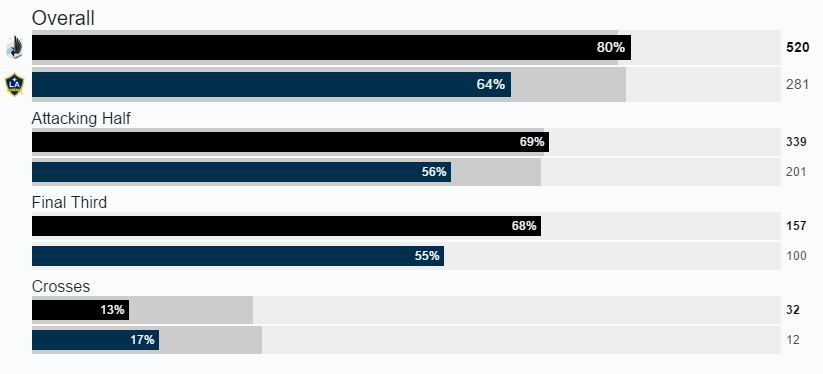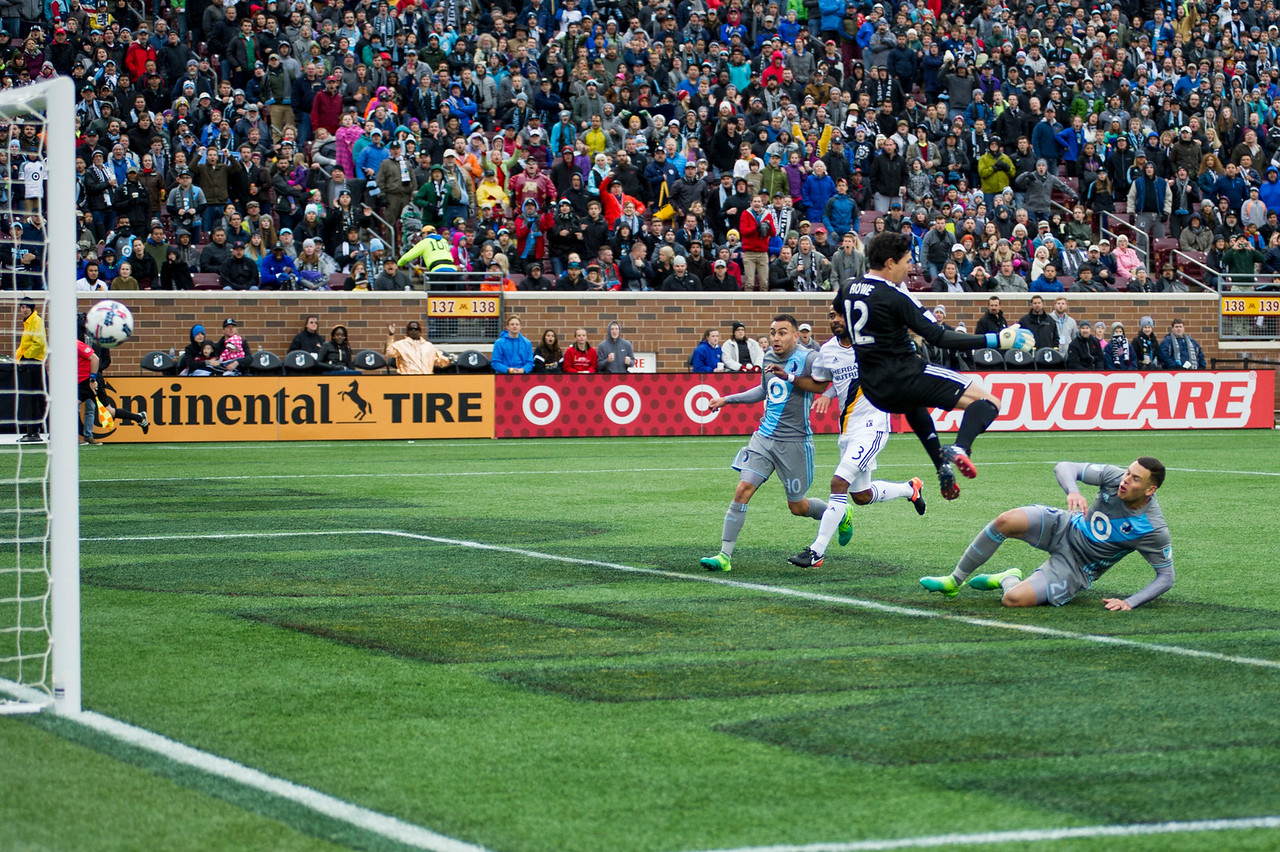There’s not a lot of clever analysis that can explain Minnesota’s 1-2 loss on Sunday to the visiting LA Galaxy. Make no mistake, the Loons outplayed their opponents in virtually every facet of play, and yet came away without a point. I found myself thinking of that famous GIF of Ronaldo muttering “injusticia.” That’s how I feel.
As does Adrian Heath, in a few more words:
Adrian Heath reflecting on the loss to the Galaxy. #MNUFC pic.twitter.com/SIZoI0vXIQ
— Megan Ryan (@theothermegryan) May 23, 2017
The Loons are playing much better, with nothing to show for it
How dominant were the Loons on Sunday? Consider first, the basic stats:

The Loons top the Galaxy in every single category, except for the ones that suggest a team under tremendous strain (yellow cards and clearances). Minnesota made nearly double the passes of their opponents, and held onto the ball for two thirds of the game. They won more duels and tackles, took more shots, and more shots on target. They had twice as many corners and nearly three times as many crosses. It was a barrage.
Breaking up the possession and passing stats by position provides more support for Minnesota’s dominance.

The Loons not only made more passes in LA’s half and LA’s final third, but they were more accurate in both of those locations as well. Consider Minnesota’s 69% passing accuracy in the final third in context. Atlanta, who scored four goals this week, passed for 59% in the final third. NYCFC, who scored three, passed for 63%. This past weekend, the highest percentage passing in the final third was 78% (Montreal, 4-1 winners over Portland), and 69% is tied for sixth best in the league.
Also of note, the Loons were dominant for much of the game:

If you break the game into eighteen five minute intervals, Minnesota “won” fifteen of them, especially in the second half, where they pounded their opponents. From the 60th to the 65th minute, the Loons enjoyed 94.3% (!!!) of the ball. It was directly after this onslaught, in the 66th minute, that Christian Ramirez broke through to even the score. Just one other team (FC Dallas, ironically in a losing effort as well, had 100% of the ball during one five minute stretch) had a five minute stretch of greater dominance.
Last but not least, the advanced stats break Minnesota’s way as well. Here’s the expected goals numbers from this last weekend of play.

The Loons would be expected to score 1.98 goals, the Galaxy only .53. The difference of 1.45 is the second largest on the week, and the second largest in a losing effort all year. (Only Atlanta, expected winners against DC United 2.6 – .82, actual losers 1-2, can be more aggrieved.)
It has been a frustrating two weeks for Minnesota, who have played well in two straight matches, going toe-to-toe with the league’s best team and then pummeling one of its worst, and yet have no points to show for it.
The only remedy is patience. The Loons are on the right track. They are playing well at home and away. They are creating chances. They are taking good looks at goal. The breaks will come. Making good on the coming homestand is important, but the Loons have looked very good on the road as well, despite not achieving any wins. Arguably, they deserved three points from Houston, and could’ve done the same in Colorado and Toronto.
The breaks will come.
The upcoming international breaks are not the crisis you’ve heard
Given the Loons’ dependence on a few CONCACAF players, especially Francisco Calvo and Kevin Molino, the looming Gold Cup and FIFA international windows might seem to be a looming disaster. But it is not so.
For one, the international window from June 5-13 does not conflict with any league games. International duty for Calvo, Molino, Venegas, and possibly Rasmus Schüller may come into play in the match against RSL at the end of the break, but only the US Open Cup match against Sporting Kansas City on the 14th will be directly affected.
The Gold Cup (July 7–26) will likely occupy the attentions of Calvo and Venegas, but not Kevin Molino. That’s because Trinidad and Tobago did not qualify for the tournament. The Loons only play twice in that span anyway, at home against Houston (who have a major reliance on Hondurans) and New York Red Bulls on the 19th and 22nd.
Finally, the August 28 – September 5 FIFA window also does not directly affect a single Loons game.
So yes, the Loons will take a hit during the Gold Cup. Yes, the Open Cup match will be a challenge. But I’ve heard people talking about these international breaks as if they’re going to leave the Loons with nobody able to play. That’s not the case.

Leave a Reply